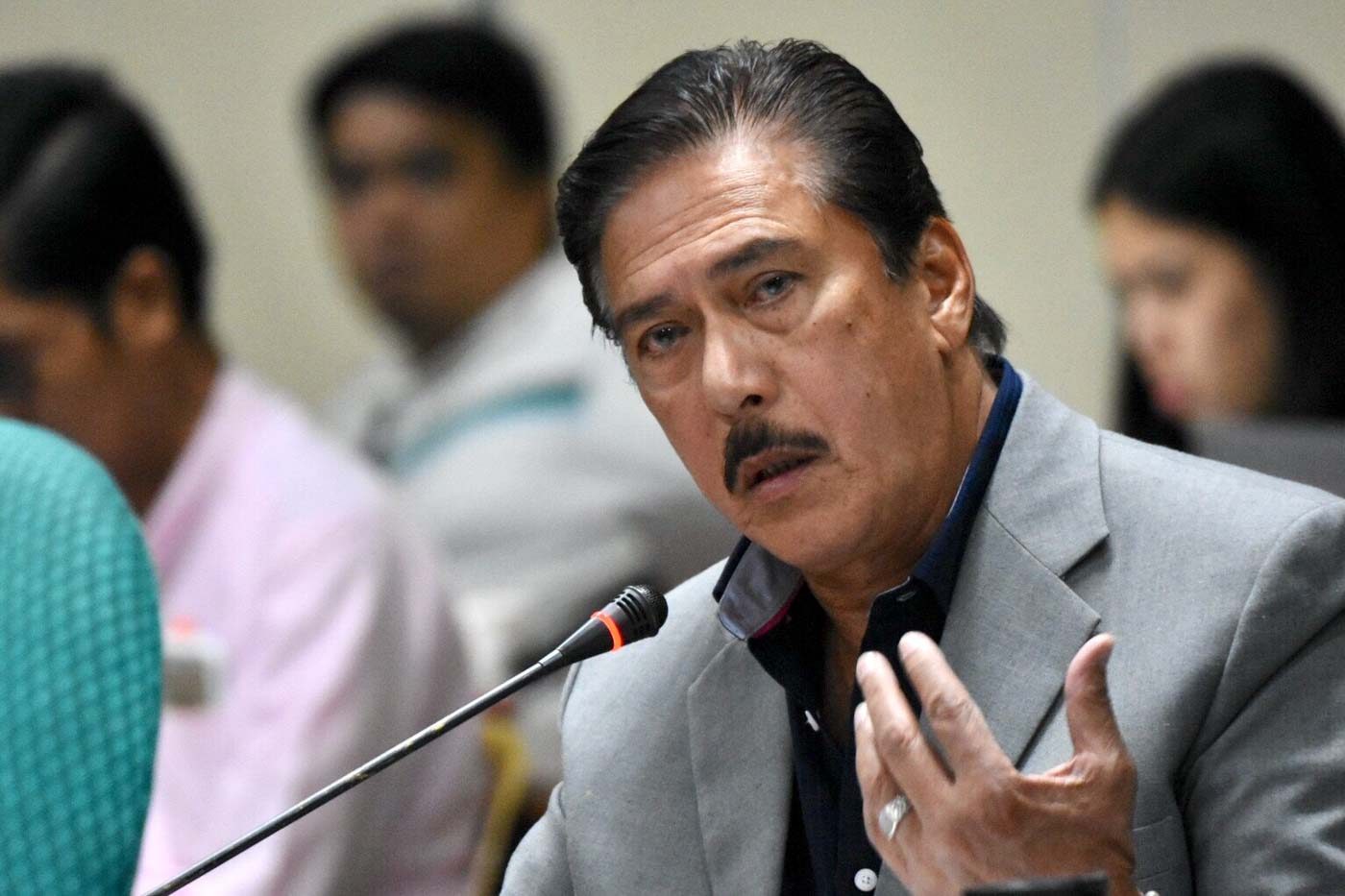SUMMARY
This is AI generated summarization, which may have errors. For context, always refer to the full article.

MANILA, Philippines – Senate President Vicente Sotto III on Monday, February 4, hit critics of the bill seeking to lower the minimum age of criminal responsibility to 12 years old, saying the proposal is “pro-poor.” (READ: Beyond juvenile delinquency: Why children break the law)
“Some would say that the proposed measure is anti-poor since most of the children in conflict with the law and the children at risk come from families that have no meaningful access to legal services,” Sotto said in his speech as co-sponsor of the bill.
“To this, I say: actually this proposal is pro-poor. Since children in poor families [do] not have access to quality education and are being exposed to violence in their own family and communities, the government is stepping in to provide these children with education and training. Their parents failed to attend to the needs of their children, and the government, with the proper implementation of the law, will be able to rehabilitate and provide better future for these children as responsible members of the society upon their reintegration,” he added.
Sotto is among the proponents of the Duterte-backed bill seeking to lower the age of criminal liability from the current 15 years old to 12 years old. To push his point, Sotto presented news clips of minors involved in rape, murder, and robbery, among others.
Sotto reiterated that under the measure, children in conflict with the law aged 12 years old and above would not be kept in jail with hardened criminals, but in rehabilitation centers.
“Sinisiraan ang mga pabor sa amendment ng mga salitang, ‘Grabe naman sila, 12 anyos pa lang ikukulong na nila. Sobra naman sila, isasama ang mga 12 years old sa mga harderned criminals sa kulungan.’ Etc, etc. Lowering the threshold to 12 years of age simply means that the government and the state can intervene in conflict situations involving its young citizens with the end in view of providing them guidance and a chance at reformation,” Sotto said.
(They are trying to destroy those who favor the amendment by saying. “It’s too much, they will jail 12-year-old kids with hardened criminals.”)
Senate justice committee chairman Richard Gordon, for his part, said everyone, including children, must be held accountable for crimes.
“You cannot cross the line of liability…. Everything (sic), including the child, must become accountable at an early age. Otherwise, what [kind of] people are we raising? Hindi na nga accountable ang parents, ‘di mo pa maa-account ang bata?,” Gordon said in his sponsorship speech.
(We’ve already failed to hold the parents accountable, now we’re not holding even the children to account?)
It was Gordon who prepared Committee Report 622, containing consolidated Senate Bill 2198, proposing to lower the age to 12 years old. The report was signed by 11 senators, but some of them expressed intention to interpellate and introduce amendments.
Senator Risa Hontiveros registered her dissent to the panel report and said the current law’s implementation hasd not been fully exhausted.
The bill would now be up for the period of interpellations and amendments, before it can get passed on second and 3rd reading. Gordon earlier said he was eyeing the passage of the measure by June.
Provisions
Under the bill, a child above 12 years but below 18 would be exempted from liability and subjected to an intervention program, unless the child has acted with discernment, in which case, such child shall be subjected to the appropriate proceedings.
Children below 12 years of age would be exempted from liability but would be subjected to intervention programs.
It also states children above 12 years but below 18 years old who committed serious crimes would be placed in a Juvenile Reformatory Center. This provision is already in the current law, which allows children 12 to 15 years old who committed serious crimes to be detained in Bahay Pag-Asas.
The bill also seeks to penalize adults, including parents, who exploit children into committing crimes.
The bill also states that parents, whose children aged 12 years old but below 18 years committed serious crimes “shall suffer the penalty of prision correccional in its minimum period to prision correccional in its maximum period,” or a minimum of 6 months and one day to a maximum of 6 years imprisonment.
Psychologists, pro-child groups, and social workers oppose lowering the minimum age of liability, saying that a child’s brain has not yet fully developed at adolescence, and that the problem is the law’s implementation. (READ: Children in conflict with the law: Cracks in Juvenile Justice Act)
According to Pulse Asia and Social Weather Stations surveys in 2017 and 2018, respectively, majority of Filipinos reject a lower minimum age of criminal liability. – Rappler.com
Add a comment
How does this make you feel?
There are no comments yet. Add your comment to start the conversation.